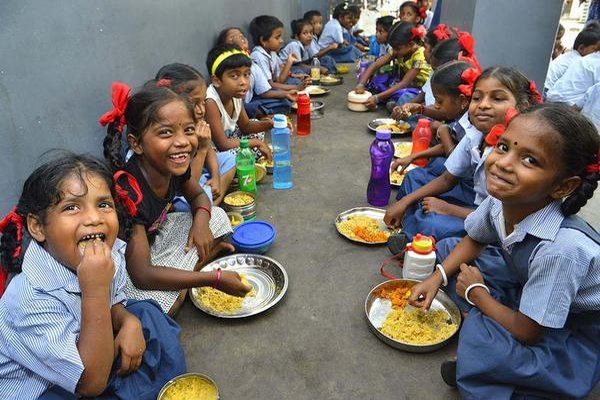Around 60 children from a middle school in Bihar’s Araria district fell ill with symptoms of food poisoning after consuming the midday meal. The incident sparked concerns among villagers and authorities, leading to investigations into the cause of the illness.
According to reports, the students of Jitwar middle school, located at Godhi Tola in Araria, started experiencing symptoms such as headaches and stomach aches soon after leaving school. By evening, around 8 pm, many of them began vomiting, indicating a severe health issue.
The situation escalated rapidly, with the number of affected students increasing within a short period. Panic spread among villagers as over 50 children fell ill within minutes. Local authorities were alerted, and prompt action was taken to address the emergency.
Sub-divisional officer (SDO) Aniket Singh stated that the children were rushed to the Araria district hospital around 9 pm on Wednesday. While most of the affected children were discharged after receiving medical treatment, some remained under observation in the hospital. Fortunately, the majority of the children were reported to be out of danger.
Civil surgeon Vidhan Chandra Singh confirmed that the incident was indeed a case of food poisoning. He reassured the public that all necessary measures were being taken to ensure the safety and well-being of the affected children.
However, conflicting accounts emerged regarding the cause of the food poisoning. School headmaster Abhinandan Rishidev asserted that out of the 437 enrolled students, 227 were present on Wednesday and were served ‘khichdi chokha’ as part of the midday meal. He refuted allegations that the meal was responsible for the children falling sick, claiming that all affected children were from a single locality and had consumed food at a village feast.
This assertion contradicted the initial suspicion that the midday meal was the source of the illness. The district education officer ordered a probe into the matter to ascertain the exact cause of the incident.
The incident raised concerns about food safety and hygiene standards in the midday meal program, which aims to provide nutritious meals to schoolchildren. The midday meal scheme is crucial for promoting attendance and improving the nutritional status of students, especially in rural areas where access to adequate nutrition may be limited.
Instances of food poisoning linked to midday meals have occurred in the past, highlighting the need for stringent quality control measures and regular inspections of food preparation facilities. Proper training of personnel involved in meal preparation and serving is essential to prevent such incidents and ensure the safety of children.
The health and well-being of schoolchildren should be a top priority for authorities, and any lapses in food safety protocols must be addressed promptly. The incident in Araria serves as a reminder of the importance of vigilance and adherence to food safety guidelines to prevent similar occurrences in the future.
Authorities must conduct a thorough investigation to determine the cause of the food poisoning and take appropriate action to prevent such incidents from recurring. Additionally, efforts should be made to raise awareness among communities about food safety practices and the importance of reporting any signs of illness promptly.
Overall, the incident underscores the need for continuous monitoring and evaluation of food programs in educational institutions to safeguard the health of students and ensure their access to safe and nutritious meals.













